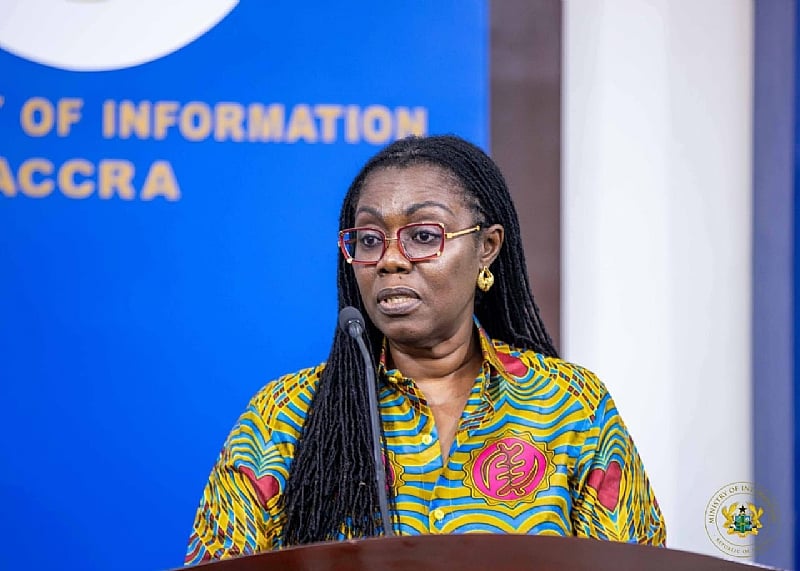As of early 2024, more than 24 million Ghanaians are connected to the internet, highlighting the country’s growing digital landscape. Among this population, approximately 7.6 million individuals actively engage with social media platforms. This information was provided by Ursula Owusu-Ekuful, Ghana’s Minister of Communications and Digitalisation, during a recent press briefing. She emphasized Ghana’s status as the 15th highest-ranking country in terms of time spent on social media, underscoring that as of January 2024, 69.8% of the population has internet access, with 21.5% being active social media users. However, this increasing connectivity comes with concerns over the associated risks, particularly the spread of misinformation and disinformation.
Hon. Ursula Owusu-Ekuful pointed out the dual nature of digital connectivity. While the benefits of having a digitally engaged populace are considerable, exposure to misinformation poses severe risks, especially in the context of the upcoming 2024 general elections in Ghana. Referencing a study by the University of Oxford, she stated that the deliberate misuse of social media platforms to disseminate falsehoods could lead to significant security issues for the nation. Therefore, all stakeholders—including citizens, governmental institutions, and the private sector—need to collaborate in addressing these challenges while also celebrating the positive impacts of digital technologies.
In light of these challenges, Ghana has launched its 2024Cyber Security Awareness Month, aiming to combat the growing prevalence of misinformation and disinformation. The initiative has garnered support from the Cyber Security Authority (CSA) and aims to educate the public on recognizing and addressing misinformation. CSA Director-General Dr. Albert Antwi-Boasiako highlighted the initiative’s goals to enhance awareness of how misinformation can undermine electoral integrity, peace, and overall security in the nation. He emphasized the need to create a well-informed society that can identify questionable content online.
Dr. Antwi-Boasiako’s message extends to the media sector, urging journalists and media professionals to exercise due diligence when reporting news. He called for a culture of verification, encouraging media outlets to cross-check information before dissemination to mitigate the ripple effect of misinformation. The responsibility of identifying false information should not rest solely on the shoulders of individual users but should be a collective effort involving media institutions, government bodies, and civil society organizations.
Furthermore, the initiative aims to foster a culture of responsible digital citizenship among Ghanaians, highlighting the importance of accountability in digital interactions. As social media continues to be a significant source of news and communication, the government’s stance is that digital literacy is paramount. By equipping citizens with the skills to critically analyze online content, the ministry hopes to cultivate an informed audience capable of discerning credible information from false narratives.
In summary, Ghana’s impressive internet connectivity stats and active social media usage represent both opportunities and challenges. As the government prepares for the upcoming elections, addressing misinformation will be critical in maintaining national security and societal integrity. The collaboration of various stakeholders, including civil society, educational institutions, and the media, will be vital in creating a robust framework to combat misinformation effectively. The 2024 Cyber Security Awareness Month serves as a timely reminder of the need for vigilance and action as Ghanaians navigate the complexities of the digital world.


